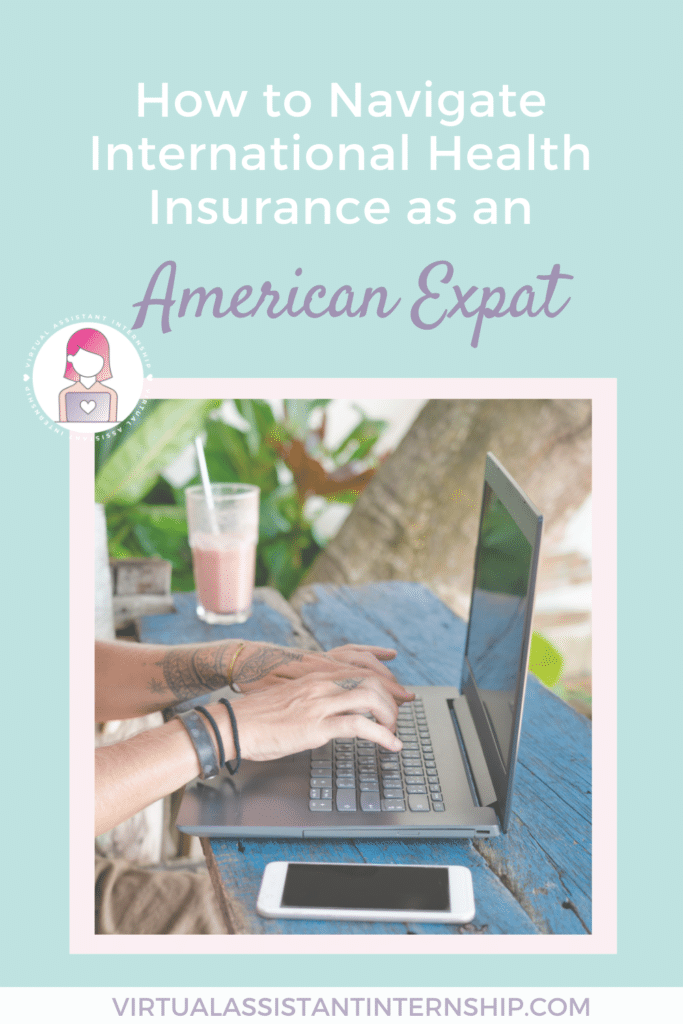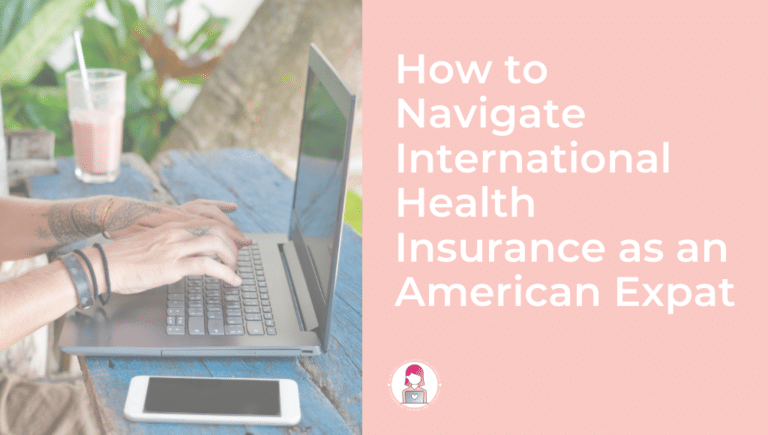Healthcare as an American citizen is overwhelming as it is, but throw in international healthcare – and your head feels like it’s going to explode!
No matter where you’re from or where you’re going, health insurance should be one of the first things you sort out before moving overseas.
There isn’t a one-size-fits-all answer for everyone. Every country, state, province, and person is different. But today, we’re going to focus on international healthcare for American citizens living abroad.
And whether you’re an American or not, these are helpful tips you can apply to you and your respective country!
But before you panic and try to figure out your healthcare options on your own, know that there are some amazing remote companies that provide health insurance and benefits too!
If that’s not an option for you and you’d rather know what all is out there, here are a few things you need to keep in mind.

Travel Insurance vs. International Health Insurance
Whether going abroad for work or leisure, you should always have some kind of health insurance plan.
As much as we hope nothing ever happens – it’s always better to be prepared.
If you’re going on a holiday or vacation, you can get away with a simple travel insurance plan. This covers you for things like lost bags, canceled flights, or emergency medical treatment.
However, if you plan on living in another country long-term – you need more coverage.
There is a big difference between travel insurance and international health insurance – and many people mistake them for the same thing.
Travel insurance only covers you for a limited amount of time and rarely covers long-term medical treatment.
International health insurance covers both emergency and routine healthcare. Expats have more flexibility in choosing their medical provider, treatment facility, and where they can receive their treatments.
The last thing you want to do is depend solely on local healthcare in whatever country you’re in, only to find out later it doesn’t cover the things you need.

Domestic Insurance Plans Don’t Always Cover You Abroad
Many new expats are surprised to learn that their domestic health insurance does not cover them when they live or work internationally.
Many think, “Oh, I have medical insurance in the States, so I’m good to go when I travel!”
Wrong!
The first thing you should do is call your current insurance company to see if they cover you abroad. Be sure to ask if there are any out-of-pocket costs you need to be aware of, too!
Some insurance companies may cover you for medical emergencies, but others may not – so it’s important to check!
The best type of plan is one that covers you in the country you physically live in, your home country, and around the world. What you may be eligible for in the U.S. may not apply if you’re living in another country and vice versa.
There are literally SO MANY OPTIONS. You can have one international insurance plan that covers you at home and abroad, you can have two insurance plans – one that covers you abroad and another to cover you at home, etc.
It’s entirely up to you! Depending on your health needs and requirements, it’s essential to do your research and figure out what health insurance plan will work best for you.
Some health insurance companies that will cover you for emergency and routine healthcare are:
You can even work with a health insurance agent to see which plan works best for you and your needs. I’ve had a great experience using Pacific Prime.
If you’re going to another country for a shorter period, a separate travel insurance plan will do the job. I recommend:

How Health Insurance Coverage Works if You Get Sick or Injured
Life happens, you guys! It’s unpredictable, and you never know what’s in store. This is no surprise.
If you get sick or injured while abroad, the last thing you want to deal with is limited access to treatment facilities and a massive hospital bill.
International health insurance will cover your expenses and allow you to choose where you want to be treated.
There are a few benefits of having international health insurance if you get sick or injured while overseas.
Let’s say you traveled to a foreign country where you didn’t speak the language very well. You get sick and are hospitalized – your international health insurance plan gives you options to work with multi-lingual insurers—no stress dealing with policy documents or helplines.
Another example is if you go hiking in a remote area, fall down a hill, and break a leg. You need immediate medical attention, but the treatment you need isn’t available locally.
International health insurance gives you the option to be taken back to your home country (also known as repatriation) or to a hospital in another country (evacuation) for the necessary treatment.
And these are just two examples! You can learn more about health insurance for American expats here.
Questions to Ask About Health Insurance
Whether you’re looking for international or domestic health insurance while working online and you’re not sure where to start, ask yourself this:
- Will I be living outside of the U.S most of the time?
- Do I need to cover people other than myself?
- Is this provider primary or secondary?
- What do they cover exactly? (Does the coverage include medical coverage, or is it just baggage/flights/etc.)?
- Can I extend coverage in the future?
It can be a daunting task to look into what healthcare options are right for you. So, it’s important to know what you’re looking for and who needs the healthcare coverage.

Healthcare coverage as someone who works remotely can be extremely overwhelming, especially when you’re your own boss, and you’re the one trying to figure it out for yourself.
This is why I cover the basics of everything you need to know to get started in my signature course, 90 Day VA.
I have an entire section dedicated to health insurance for virtual workers, how to find your healthcare, and the different options available to you.
If you’re still unsure whether or not you want to get started working remotely, check out my FREE masterclass to help you decide if becoming a virtual assistant is right for you.





